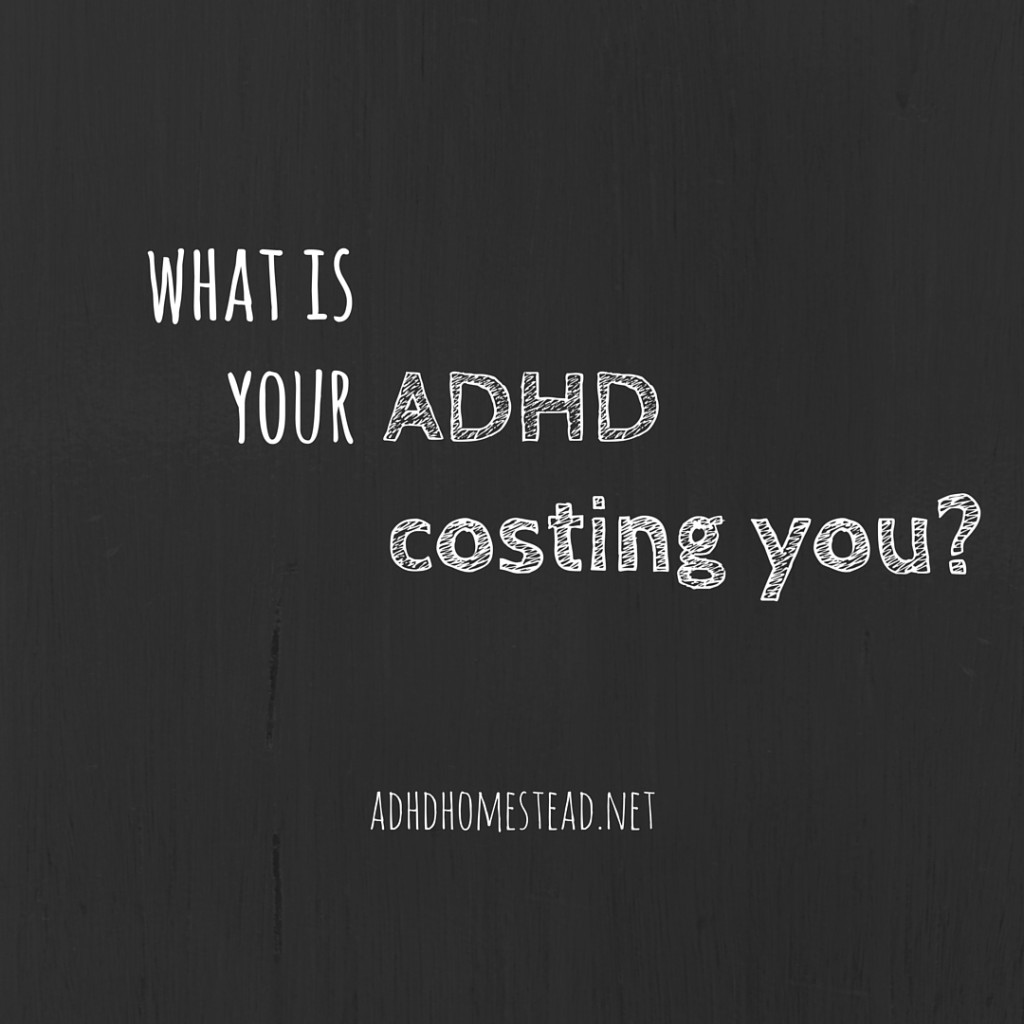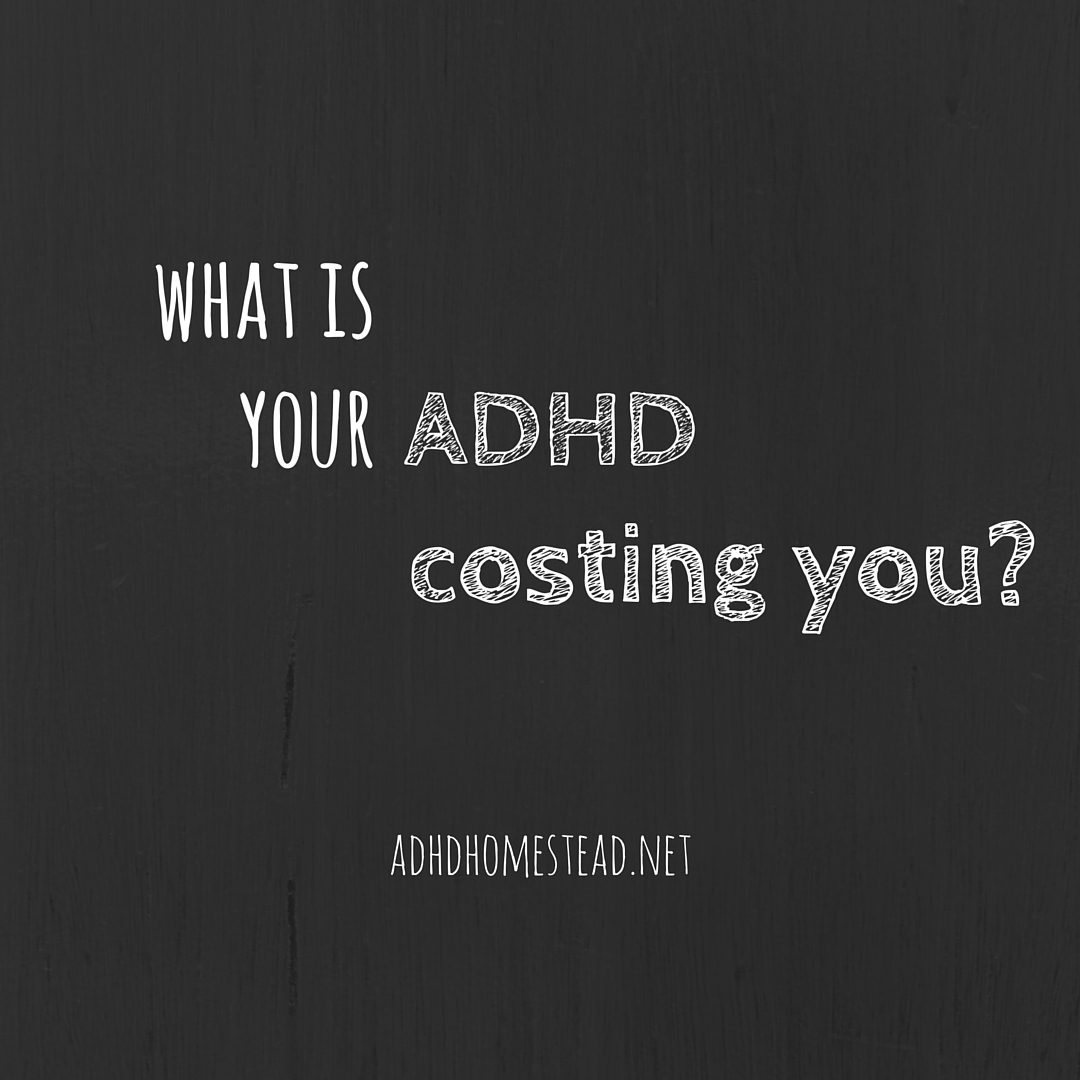 When we think about New Year’s resolutions, we imagine ways we’d like to improve. Things we promise ourselves we’ll do better this year than last.
When we think about New Year’s resolutions, we imagine ways we’d like to improve. Things we promise ourselves we’ll do better this year than last.
But why?
Really, why do we want to change? Specifically?
Because it’s a good idea? Because we know we’re not perfect? Because our spouse asked us to?
Not good enough.
In my experience, change doesn’t happen when motivation to do so is abstract.
One of the most powerful agents of change for me — and the beginning of my journey toward proper ADHD treatment — was an exercise from Marilyn Paul’s It’s Hard to Make a Difference When You Can’t Find Your Keys. Paul (no relation to me) challenged readers to inventory the real costs of disorganization and personal ineffectiveness.
My list looked a little like this:
- Money
- Late fees on bills I forgot to pay (despite having enough money in the bank)
- Lost interest on checks I forgot to deposit (or lost money entirely if the check was so old the bank wouldn’t take it)
- Health (medical appointments I forgot to schedule)
- Hobbies (never have/make time for them)
- Piece of mind in relationships (anxiety, guilt, feeling others’ trust is misplaced)
- Serenity (no calm, orderly place to retreat to in my home or office)
- Social outlets (never have/make time for friends)
- Personal and professional skill development
- Long-distance friends and family (didn’t keep on top of correspondence)
When I took stock like this, my heart felt heavy. I feared I’d never reach my potential. Worse, others would see me as aloof, uncaring, disorganized, and irresponsible.
But it was kind of like the time I multiplied the cost of my daily latte habit over the course of a year: the process necessitated an “oh, s&$#” moment.
There’s a famous Maya Angelou quote, “do the best you can until you know better. Then when you know better, do better.”
It’s easy to brush off an overdraft fee here or lost check there. One failed friendship might have any number of explanations. But taken together, I couldn’t deny the pattern. My ADHD — though that’s not what I called it at the time — was costing me a fortune, in more ways than one.
And once I really knew better, I resolved to do better.
It’s been a long road, fraught with switchbacks and wrong turns, but I think I’m getting somewhere.
Have you ever tried to quantify the costs of ADHD? Has it helped keep you motivated, or just demoralized you? (I definitely experience both on a regular basis!)
Hey there! Are you enjoying The ADHD Homestead?
Here's the thing: I don't like ads. I don't want to sell your attention to an advertising service run by the world's biggest data mining company. I also value my integrity and my readers' trust above all, which means I accept very few sponsorships/partnerships.
So I'm asking for your support directly. For the cost of one cup of coffee, you can help keep this site unbiased and ad-free.
Below you will find two buttons. The first lets you join our crew of Patreon pals and pledge monthly support for my work. Patrons also have access to my Audioblogs podcast. The second takes you to a simple donation page to pledge one-time or recurring support for The ADHD Homestead, no frills, no strings. Do whichever feels best for you!

